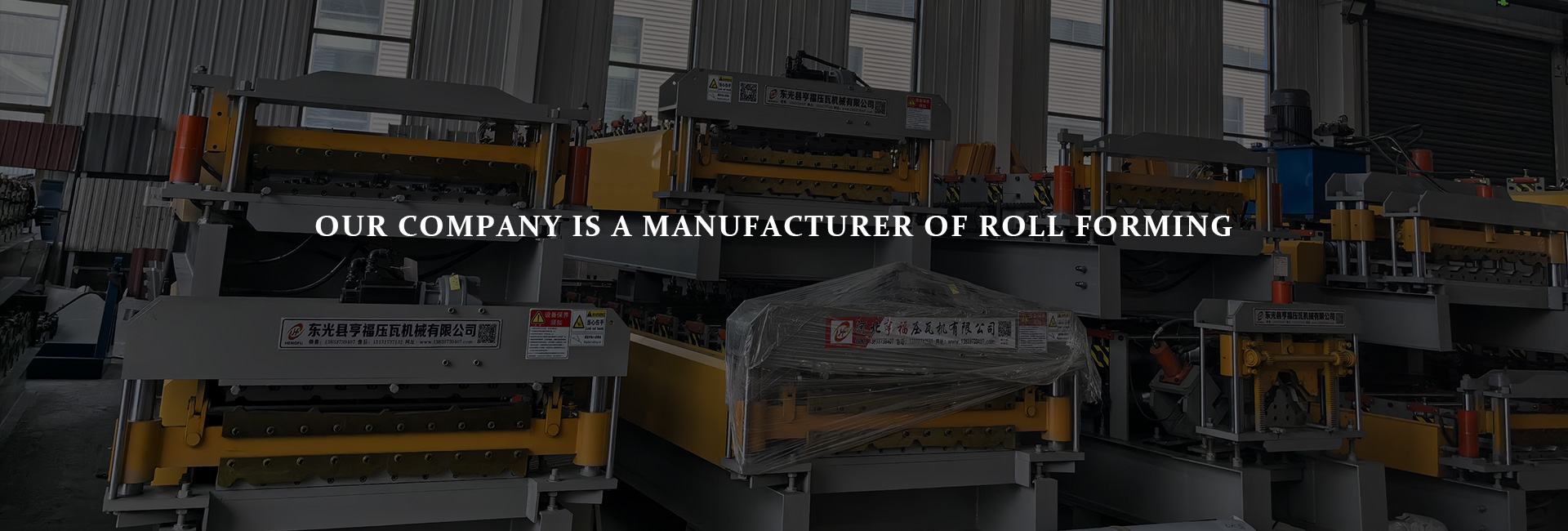High-altitude roll forming machine platforms are essential for construction and industrial projects requiring precise work at elevated heights. However, the inherent risks of working at such altitudes demand strict safety measures and thorough training. This guide explores best practices for ensuring safety and effective training for operating High-altitude roll forming machine platforms.
1. Importance of Safety in High-Altitude Operations
Operating roll forming machines on high-altitude platforms poses unique challenges that require comprehensive safety protocols.
· Risk of Falls:
o Falls from height are one of the leading causes of workplace injuries. Proper safety equipment and training mitigate this risk.
· Machinery Hazards:
o Operating heavy machinery at altitude introduces potential risks like equipment malfunction or operator error.
· Environmental Factors:
o Wind, weather conditions, and visibility at high altitudes can impact operator safety and machine performance.
2. Pre-Operation Safety Measures
Proper preparation is crucial for minimizing risks before operating High-altitude roll forming machine platforms.
· Equipment Inspection:
o Inspect the roll forming machine and platform for mechanical issues, structural integrity, and proper installation.
o Verify that safety harnesses, guardrails, and other protective systems are in place and functioning.
· Site Assessment:
o Conduct a thorough site inspection to identify potential hazards, including unstable ground, nearby structures, and weather conditions.
o Ensure the platform is on a stable foundation and positioned securely.
· Operator Fitness:
o Assess the physical and mental fitness of operators to ensure they can perform their duties safely at high altitudes.
3. Personal Protective Equipment (PPE)
Wearing appropriate personal protective equipment is a fundamental aspect of safety.
· Mandatory Gear:
o Full-body harnesses and lanyards to prevent falls.
o Hard hats, gloves, and steel-toed boots to protect against debris and machinery-related injuries.
· Optional Enhancements:
o Wind-resistant goggles for clear visibility in adverse weather.
o Noise-cancelling ear protection if operating in noisy environments.
4. Training Requirements for Operators
Comprehensive training ensures operators can manage high-altitude operations safely and effectively.
· Machine Operation Training:
o Teach operators the functionality and controls of the roll forming machine.
o Emphasize emergency shutdown procedures and troubleshooting common issues.
· Height Safety Training:
o Educate workers on fall protection techniques, including how to use harnesses and anchor points.
o Conduct practice drills for rescuing workers in case of an emergency.
· Environmental Awareness:
o Train operators to recognize and respond to changing weather conditions, including high winds or poor visibility.
o Emphasize the importance of stopping operations when environmental risks escalate.
5. Best Practices for Safe Operation
Following these best practices enhances safety during high-altitude roll forming operations.
· Communication Systems:
o Use two-way radios or other communication tools to maintain constant contact with ground personnel.
o Establish clear hand signals for critical operations in case of communication failure.
· Routine Breaks:
o Schedule regular breaks to prevent fatigue, which can compromise safety.
o Provide access to hydration and rest areas to keep operators alert and focused.
· Load Management:
o Avoid overloading the platform, which can compromise its stability.
o Ensure materials are secured properly to prevent shifting during operation.
6. Emergency Preparedness
Being prepared for emergencies is crucial in high-altitude operations.
· Emergency Kits:
o Equip platforms with first aid kits, fire extinguishers, and emergency communication devices.
o Ensure workers know the location and proper use of emergency equipment.
· Rescue Plans:
o Develop and practice emergency rescue plans, including procedures for reaching and assisting stranded workers.
o Train personnel in basic first aid and CPR.
· Regular Drills:
o Conduct regular safety drills to reinforce emergency protocols and build confidence among operators.
7. Compliance with Industry Standards
Adhering to industry standards and regulations ensures safe and legal operations.
· Local Regulations:
o Familiarize yourself with local occupational safety and health guidelines for high-altitude work.
o Obtain necessary permits and certifications for both operators and equipment.
· Regular Audits:
o Schedule periodic safety audits to ensure ongoing compliance with safety standards.
o Address any identified safety concerns promptly.
Conclusion
Operating High-altitude roll forming machine platforms requires a commitment to safety and comprehensive training for all personnel involved. By implementing rigorous pre-operation checks, providing proper PPE, and ensuring thorough training, businesses can minimize risks and create a safer working environment. Adherence to best practices and emergency preparedness further ensures the well-being of operators and the success of high-altitude projects. Investing in safety and training not only protects workers but also enhances operational efficiency and productivity.







